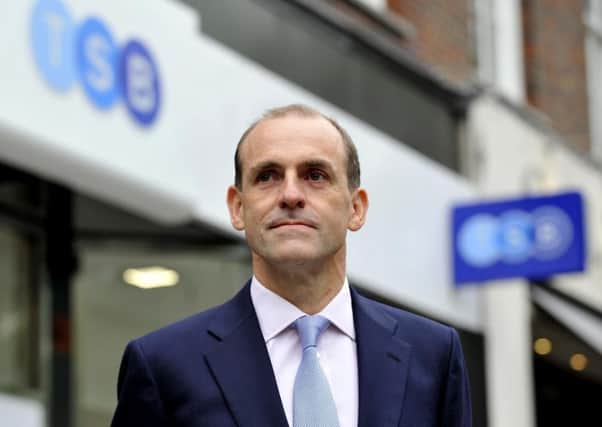Lynda Gauld: TSB debacle exacted a high price


You see, I have both personal and business accounts with them and so was doubly affected by the recent IT debacle. While it took longer than promised for me to gain access to my personal accounts and that was inconvenient and frustrating, the scale of the impact from the disruption to the business accounts caused immense inconvenience and stress and took up a disproportionate amount of my time and effort – resulting in me putting “tasks” such as this piece to one side until I got the finances sorted out.
It was clear from media reports and from social media that my experiences were not unique and many other small business found themselves in a similar situation. I thought it was just me who kept business capital in a savings account, transferring what was required to the current account “just in time” to pay regular commitments and to settle invoices. However, it would appear that this is a common form of financial management by small business and so the impact of being locked out of our accounts for, in our case, ten days and not the two days promised was far-reaching.
Advertisement
Hide AdAdvertisement
Hide AdAccording to the Federation of Small Businesses, small businesses account for 99.3 per cent of all private sector businesses, 60 per cent of all private sector employment and 51 per cent of all private sector turnover in the UK; 76 per cent of businesses do not employ anyone aside from the owner(s) and there has been sustained growth in SMEs with increases of 64 per cent since 2000 in the UK,.
Figures for Scotland are very much in line with the rest of the UK and according the Scottish Government’s Small Business Survey Scotland 2016 only five per cent of Scottish SMEs had switched their main bank account used for business purposes in the previous 12 months, while 94 per cent continued banking with the same bank account and the most common forms of external finance used by Scottish SMEs were credit cards (38 per cent) and bank overdraft facilities (30 per cent).
Paul Pester at TSB has given assurances that fees and banking charges will be waived for April, but like seemingly the majority of small business owners, being locked out of our business accounts had an unexpected and unprecedented impact.
SMEs are increasingly at the very heart of the Scottish and UK economy; we provide jobs, even if it is just for ourselves and our family members – 73 per cent of SMEs surveyed in Scotland were family-owned; we are prevalent in all sectors – SMEs account for at least 99.5 per cent of the businesses in every main industry sector according to the FSB and we make a huge contribution – 51 per cent of all private sector turnover in the UK.
Advertisement
Hide AdAdvertisement
Hide AdSMEs are the backbone of our economy and increasingly governments are recognising our contribution and supporting our endeavours.
TSB’s waiving of fees and charges for those affected by the IT debacle seems somehow to miss the significance of SMEs, even to their own bottom line.
Lynda Gauld is managing director of Baccus Consulting